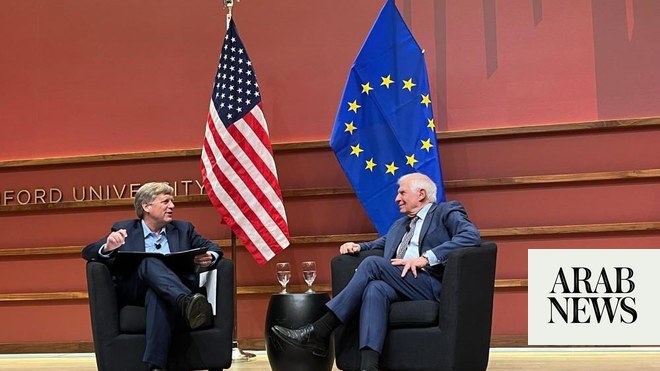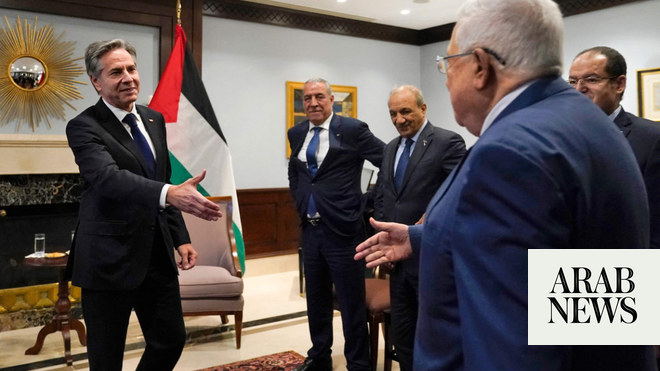
Borrell said a majority of the 27 European Union states had — as expected — rejected his call to suspend political dialogue with Israel over the Gaza war
BRUSSELS: The EU’s outgoing top diplomat Josep Borrell said Monday he had “no more words” to describe the crisis in the Middle East as he delivered a bleak assessment at his swansong foreign ministers’ meeting.
At a somber press briefing after the Brussels talks, Borrell said a majority of the 27 European Union states had — as expected — rejected his call to suspend political dialogue with Israel over the Gaza war.
Barely concealing his frustration at the EU’s failure to weigh on the Israeli-Palestinian conflict during his five-year mandate, Borrell earlier said he had “exhausted the words to explain what’s happening.”
“This is a war against the children,” the 77-year-old foreign policy chief told reporters after the talks. “The most frequent age of the casualties in Gaza is five years old.”
He described an “apocalyptical situation in Gaza, where 70 percent of the death toll is being paid by children and women,” with two million people displaced. He also acknowledged the suffering of Israeli hostages held by Hamas and other militant groups since the October 7, 2023 attacks on Israel.
The Hamas attack resulted in the deaths of 1,206 people, mostly civilians, according to an AFP tally of Israeli official figures. The health ministry in Hamas-run Gaza says that 43,922 people, mostly civilians, have been killed there since October 7.
Borrell’s proposal to suspend the EU’s political dialogue with Israel — part of a wider agreement governing trade ties — had been expected to hit opposition from numerous member states including key powers France and Germany.
“Most of the member states considered that it was much better to continue having diplomatic and political relationship with Israel,” Borrell confirmed.
But he said his services had “at least put on the table” all the information produced by UN bodies and international organizations on the ground “in order to judge the way the war is being waged.”
Since Israel unleashed its devastating retaliatory offensive in Gaza, EU states have been deeply divided over the conflict — with Borrell often an outlier in denouncing what he views as Israel’s excesses.
On Russian President Vladimir Putin’s invasion of Ukraine, Borrell likewise voiced frustration at the shortcomings in Europe’s response as the conflict reaches its 1,000th day.
“It’s not only 1,000 days. It is 4,000 days since Putin attacked Ukraine the first time,” Borrell said.
“Maybe our response should have been firmer, stronger since the beginning,” he said.
“It’s clear that each step that is being left without reaction encourages Russia to escalate further,” he warned — pointing at Russia’s use of drones from Iran, weapons and troops from North Korea, and dual-use goods from China.
Moscow’s all-out assault in February 2022 upended European security and came to dominate Borrell’s time at the helm of the bloc’s diplomacy.
Since then the EU has spent billions of dollars on arming Ukraine and Russia has been hit by repeated sanctions despite regular obstacles from reluctant EU states such as Hungary.
But Borrell leaves the stage at a perilous time — with the re-election of Donald Trump in the United States heralding challenges for Europe and Russia advancing in Ukraine.
“If we want to be a geopolitical player, if we want to use the language of power, we have to be more united,” warned Borrell, who is to hand over to former Estonian prime minister Kaja Kallas in December.
“It’s time for Europe to take their strategic responsibilities,” Borrell said. “It’s time for Europe to step up.”










